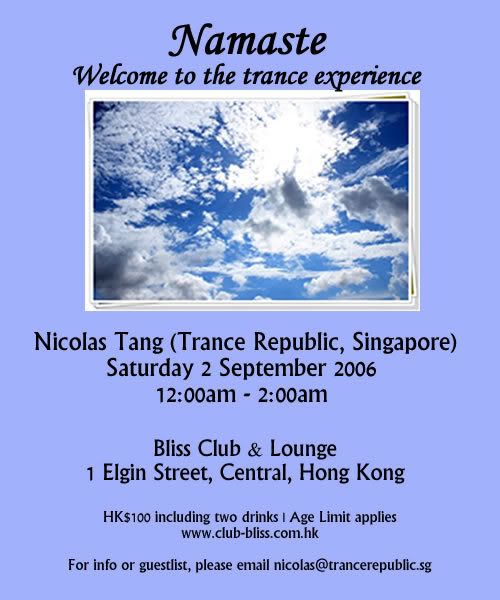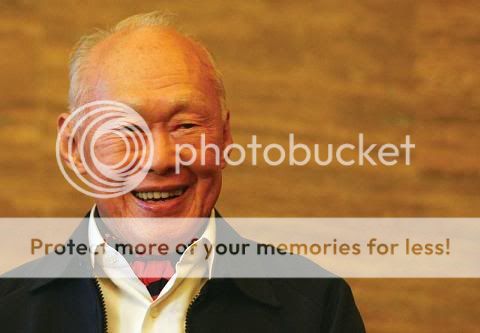SCMP, Friday, May 26, 2006
By Zara Horner
BY ALL ACCOUNTS Hong Kong is one of the most stressful cities in the world – but there are plenty of ways to chill out.
Just getting out and having fun in the sun is one of the simplest and easiest, according to psychiatrist David Lau. “When we’re having fun, we automatically leave stress behind,” Lau says. He also advises reviewing situations that cause stress and how you behave during them. Think about how others react to your behaviour. List things that would make life easier and less stressful. “Writing things down can sort things out in your head,” Lau says. “Sometimes it’s also important to get help, so find someone you trust to talk to.”
The human body is designed to cope with short bursts of danger, illness or emergencies, but Lau says that when the body releases adrenaline and cortisol (normal stress-reaction chemicals) “we’re less able to cope with the long-lasting pressures that build up in modern life”.
There are myriad ways to de-stress in Hong Kong – and they won’t necessarily break the bank.
Knead the pain away
“Feeling stressed is one of the main reasons clients come for a massage,” says therapist Colleen Van Ronk. “The pain shows up mainly in the neck and shoulders where small nodules of bunched up muscle and waste products accumulate. Massage will help soften this tension and have a positive overall effect on the client’s mental and emotional well-being, too.”
She recommends aromatherapy massages for stress relief. “Essential oils such as citrus essences, rosemary, sandalwood, peppermint, lavender, geranium and ylang ylang all have powerful healing effects.” A friend’s recommendation is a good way to find a masseuse, Van Ronk says. She charges $300 for an hour.
Pin-pointing stress
Acupuncture is one of the oldest forms of healing known, says Quality Chinese Medical Centre director Sally Tse – and it’s virtually pain free. “The sterile needles are as fine as a hair, so they don’t hurt on insertion. There could be a momentary sharpness or dull ache, that’s all.” Does being a pin cushion reduce stress? “Absolutely. Chinese medicine approaches the human condition as a whole – body, mind and spirit. There’s a vital force called chi that dictates the working of every organ and system. Chi must flow freely in the correct strength and quality for the body to function properly. When stressed, the flow of this vital energy is impaired.” When needles are inserted on acupuncture points, energy is said to be drawn to deficient organs, excesses dispersed, blockages removed and balance restored. “In Chinese medicine, stress – and its symptoms of nervousness, sleeplessness and irritability, among others – is caused by deficient liver and kidney function,” Tse says. “After a pulse and tongue examination, needles would be inserted into the meridian points associated with these organs so the symptoms of stress can be relieved.” Tse charges $3,300 for 10 sessions.
We are what we eat
“Food definitely affects our moods,” says dietician Gabrielle Tuscher. “For most people, missed meals or long periods of time without food leads to irritability, lethargy and lack of concentration.” Food can be used to relieve symptoms of stress, Tuscher says. “Drink lots of water. Avoid or limit caffeine, which is just a quick-fix energy-sapper, and alcohol, which is a depressant. Don’t go more than four hours without eating, and choose five small balanced meals a day. Sugary, high-fat and greasy foods may be tempting, especially when we’re not feeling our best, but they’re a temporary fix, after which the guilt kicks in – not to mention the hip padding.” Graham Stuart-Bradshaw from the Integrated Medicine Institute says that taking supplements such as a vitamin B complex or magnesium can help. Herbal remedies include valerium, Siberian and American ginseng, and rhodiola. “But, a nice cup of chamomile tea before a good night’s sleep is probably one of the best and easiest ways to alleviate signs of stress,” Stuart-Bradshaw says.
Don’t let stress get up your nose
About 50 million smell receptors sending signals through our nervous system to the brain can’t be overlooked, says aromatherapist Tina Kalmar. “These messages provoke memories, emotions and even physical sensations. It makes sense to counter the polluted, smelly air we’re forced to breathe outside with nicer, healing aromas indoors.” Burning oils and candles throughout the home is the easiest way, says Kalmar. “During the day, go for stimulating smells such as lime, grapefruit and mandarin to provide mental clarity and energise. A few drops of eucalyptus oil on a tissue to sniff through the day is also good. In the evening, try more relaxing scents such as neroli, lavender and sandalwood.” Place a candle or burner in each room of the home and let the stress waft away.
Day spa bliss
If you can’t get out of Hong Kong for a weekend to lie under a palm tree, at least give yourself an hour or two off. “Our top-selling treatments and products are for de-stressing,” says Peninsula Spa director Ina Soong. “More and more of our customers are looking for ways to alleviate stress and for that reason most spas now provide a comprehensive range of treatments. Our Peninsula Spa Ceremonies focuses on de-stressing and calming with acupressure facials, herbal body masks, hot stone massage, essential oils and herbal concentrates. Any time is a good time for a spa, but to truly relax and unwind it’s best to schedule an appointment when you have nothing to do straight afterwards to prolong the benefits.” A Skin Rescue and Skin Brightener Facial costs $2,000, and a Detox and Renew Full Day costs $3,980.
Work it out
“Getting active for just 15 minutes a day is all it takes to feel better because of the release of endorphins,” says fitness instructor Claire Sargeant. “There are all sorts of physical benefits which most people are aware of, such as a healthy heart and respiratory system, increased strength and revved up metabolism. Exercise also has psychological benefits, because self-awareness and self-confidence are boosted. Being active, especially doing something you enjoy, is the best stress-buster. Trying something new is a great antidote to the blues. Choose from dancing, rock climbing, horse riding, learning to ride a mono-cycle or rollerblading. People tend to fall into exercise categories. ‘Not sure I want to, but I should’ people should join a class, buddy up or get a personal trainer. ‘OK, I might’ people should write out a list of pros and cons of what they might like doing and how. ‘Yep, let’s do it’ people should set a goal, and make a plan.”
Omm that stress away
The mind absorbs whatever it’s exposed to, so we should take care what television shows we watch, magazines and books we read and even songs we listen to, says yoga master Sachinandan Das. “Meditation is the process of being in the innermost self where the spiritual realm can escape from the cycle of worldly desire, action and impression,” he says. “Anyone can do it as there are numerous forms of meditation to suit all kinds of personalities.” When people indulge in “materially complex lifestyles”, they get trapped in mental frustration, negative emotions and stress, Das says. Finding ways to relax deeply can help overcome these potentially destructive patterns. “Meditation techniques combat a stressful life. It’s all about focusing attention inwards [Dharana], while letting all thoughts gently come and go through the mind without getting tangled in them [Dhyana].”
Bend it like Madonna
Yoga is a great way to tune the body and align the breath, automatically reducing stress, says Pure Yoga’s Patrick Creelman. “Yoga cleanses, strengthens and har- monises the whole system – body and mind,” he says. “The incredibly powerful yogic physical practices begin very simply with a natural progression to the highly technical and it’s really all about what the individual chooses to give. The philosophy of yoga is rooted in the belief that all things are connected, by attuning physical movements and breathing patterns we achieve complete harmony.”
Here are two postures that Creelman recommends as simple stress-busters:
Downward dog: Lie belly down, put your hands under your shoulders, tuck your toes under your feet and push your arms straight, lifting your hips and moving your thighs back to straighten your legs, so the body forms an inverted “V”, with your head between your arms.
Viparita karani: Lie with your buttocks against a wall, and legs straight up the wall. Head, shoulders, back and arms rest on the floor. Relax and breathe normally.
Whatever floats your boat
“The simple act of smiling can make us feel a whole lot better,” says Lau. So why not try an unusual way of having fun? The nine-metre Rigid Inflatable Boat (RIB) operated by Ian Corby’s Seafari may be just the ticket. “Similar to the vessels used by the Hong Kong Marine Police as well as high-speed rescue services, the RIB reaches speeds of 50 knots in full twisting, turning, banking jet propulsion,” says Corby. “Getting up close and personal with Hong Kong’s container ship visitors … brings a smile to the faces of even the most stressed passengers,” says Corby. So, make like Tom Cruise and book a stress-busting mission with friends and family. It costs $250 per person for half an hour.
Break habits
The Alexander Technique (AT) is a therapy that focuses on how we move and hold our bodies. Patterns of misuse are redirected so that physical and mental tension can be eliminated.
“The AT is a way of using your awareness of muscle tension to optimise the way you move and function,” says practitioner Peter Schneider. “If negative movement habits and patterns are changed, or fine-tuned, general aches and pains can be a thing of the past. It’s possible to learn how to change and improve reactions so a calmer approach results and, therefore, less stress.”
An AT session costs $800 an hour, but you probably need only two sessions to benefit because the skill is taught quickly.



















